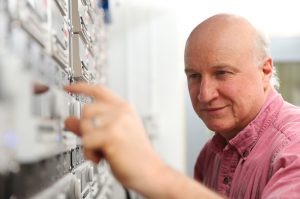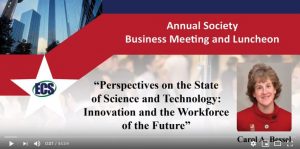 As ECS celebrates the 40-year-anniversary of its first female president, Joan Berkowitz, it is important to note that ECS has a tradition of showcasing women in the sciences at its meetings. Carol A. Bessel, acting division director at the National Science Foundation (NSF), was the highlighted speaker at the annual business meeting at the 235th ECS Meeting. Valerie Browning, director of the Defense Advances Research Projects Agency (DARPA)’s Defense Sciences Office (DSO), will deliver the ECS Lecture at the plenary session of the 236th ECS Meeting. If including, recognizing, and hearing women is critical to attracting and retaining talented women in the sciences, then Bessel and Browning are shining examples of women leading the way. (more…)
As ECS celebrates the 40-year-anniversary of its first female president, Joan Berkowitz, it is important to note that ECS has a tradition of showcasing women in the sciences at its meetings. Carol A. Bessel, acting division director at the National Science Foundation (NSF), was the highlighted speaker at the annual business meeting at the 235th ECS Meeting. Valerie Browning, director of the Defense Advances Research Projects Agency (DARPA)’s Defense Sciences Office (DSO), will deliver the ECS Lecture at the plenary session of the 236th ECS Meeting. If including, recognizing, and hearing women is critical to attracting and retaining talented women in the sciences, then Bessel and Browning are shining examples of women leading the way. (more…)
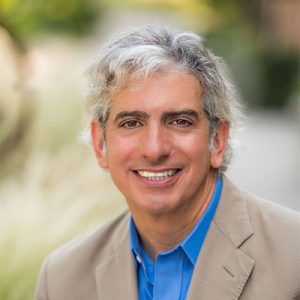 Christopher Jannuzzi, Executive Director and CEO of The Electrochemical Society (ECS), is featured in SciTech Europa Quarterly, a digital publication bringing together the key voices in the European scientific community and the leading trends in science, research and innovation. Jannuzzi describes the distinguished history of ECS, which was founded in 1902 and has grown to a society with over 8,000 members in 80 countries. The core mission remains the same: to advance theory and practice at the forefront of electrochemical and solid state science and technology, and allied subjects. However, with 13 electrochemistry and solid state science and technology divisions, the application—and vital significance—of electrochemistry has grown exponentially. The research published in ECS journals is of huge importance to the future of our planet. ECS makes it freely available to all readers—and free for authors to publish—through a bold and exciting open access initiative, “Free the Science.” Read the full article in SciTech Europa Quarterly now.
Christopher Jannuzzi, Executive Director and CEO of The Electrochemical Society (ECS), is featured in SciTech Europa Quarterly, a digital publication bringing together the key voices in the European scientific community and the leading trends in science, research and innovation. Jannuzzi describes the distinguished history of ECS, which was founded in 1902 and has grown to a society with over 8,000 members in 80 countries. The core mission remains the same: to advance theory and practice at the forefront of electrochemical and solid state science and technology, and allied subjects. However, with 13 electrochemistry and solid state science and technology divisions, the application—and vital significance—of electrochemistry has grown exponentially. The research published in ECS journals is of huge importance to the future of our planet. ECS makes it freely available to all readers—and free for authors to publish—through a bold and exciting open access initiative, “Free the Science.” Read the full article in SciTech Europa Quarterly now.
Dahn Unveils Million Mile Battery in Ground-breaking Article
Posted on September 25, 2019 by Frances Chaves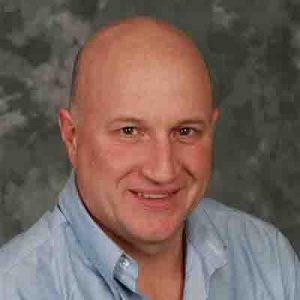 Elon Musk promised—and Jeff Dahn delivered! With the publishing of a ground-breaking paper in the Journal of The Electrochemical Society (JES), Dahn announced to the world that Tesla may soon have a battery that makes their robot taxis and long-haul electric trucks viable. Dahn and his research group is Tesla’s battery research partner. Dahn says “… that cells of this type should be able to power an electric vehicle for over one million miles and last at least two decades in grid energy storage.”
Elon Musk promised—and Jeff Dahn delivered! With the publishing of a ground-breaking paper in the Journal of The Electrochemical Society (JES), Dahn announced to the world that Tesla may soon have a battery that makes their robot taxis and long-haul electric trucks viable. Dahn and his research group is Tesla’s battery research partner. Dahn says “… that cells of this type should be able to power an electric vehicle for over one million miles and last at least two decades in grid energy storage.”
According to Doron Aurbach, JES batteries and energy storage technical editor, “This comprehensive article is expected to be impactful in the field of batteries and energy storage. It is a very systematic study by one of the most renowned and prestigious electrochemistry groups in the world. It was a pleasure for me as a technical editor to handle this paper. It substantiates all the statements about the truly high quality and importance of JES, one of the leading and most prestigious journals in electrochemistry. JES provides an excellent service to the global electrochemistry community—and thousands of ECS members—regardless of ‘impact factors.’” As of today, Dahn’s JES article has received over 31,563 abstract views, over 17,000 articles downloads, and quotes in news outlets around the world. (more…)
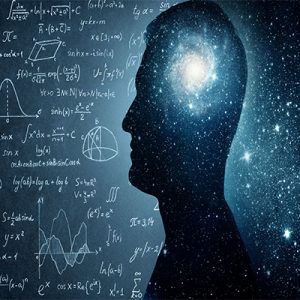 Recent growth in space-related activities has presented numerous opportunities for electrochemistry in space. That’s why Greg Jackson, chair of the ECS High-Temperature Energy, Materials & Processes Division (H-TEMP) and mechanical engineering professor at the Colorado School of Mines, took it upon himself to bring the first-ever symposium dedicated to “Electrochemistry in Space” to the 236th ECS Meeting.
Recent growth in space-related activities has presented numerous opportunities for electrochemistry in space. That’s why Greg Jackson, chair of the ECS High-Temperature Energy, Materials & Processes Division (H-TEMP) and mechanical engineering professor at the Colorado School of Mines, took it upon himself to bring the first-ever symposium dedicated to “Electrochemistry in Space” to the 236th ECS Meeting.
“As a board member and someone who cares about the Society expanding its audience, I felt that there are many activities going on in regards to applying electrochemistry in space and the uniqueness of the space environment merited a special symposium,” said Jackson, lead symposium organizer.
The potential for increased lunar and Martian activities with in situ resource utilization (ISRU), human space flight, and in-space satellite maintenance, and space debris management present many technical challenges and opportunities where electrochemistry plays a central role. (more…)
Deadline Extended for the Robert C. Haddon Research Award
Posted on September 24, 2019 by Frances Chaves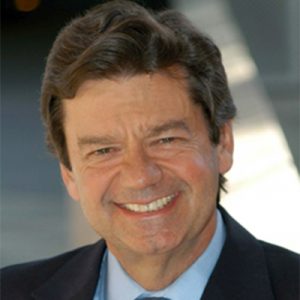 The new deadline is October 8, 2019.
The new deadline is October 8, 2019.
The Electrochemical Society Nanocarbons Division established the Award in 2018 to encourage excellence in nanocarbons research. The award recognizes individuals who have made outstanding contributions to the understanding and applications of carbon materials.
ECS invites nominations for the Robert C. Haddon Research Award of qualified individuals who have made outstanding achievement in, or scientific contribution to, the science of fullerenes, nanotubes and carbon nanostructures. The award consists of a scroll, a $1,000 prize, and assistance up to $1,500 to facilitate attendance at the award presentation. ECS has 13 electrochemistry and solid state science and technology divisions, each of which has robust awards and travel grant programs. (more…)
237th ECS Meeting with IMCS 2020 Topic Close-up: Nanoscale Luminescent Materials 6
Posted on September 19, 2019 by Frances Chaves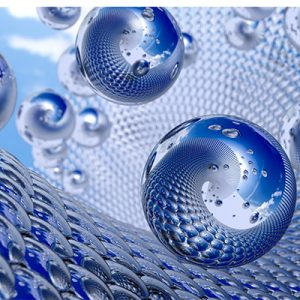 Deadline for submitting abstracts
Deadline for submitting abstracts
December 2, 2019
Submit today!
Topic Close-up #3
Symposium D02: Nanoscale Luminescent Materials 6
Symposium focus: This symposium—the sixth in a bi-annual series—focuses on those characteristics of nanoscale materials that relate to their luminescence properties. Relevant topics include: effects of quantum confinement, the role of surface states, loss mechanisms, methods to improve luminescence efficiency, bulk vs. nanoparticle luminescence, and the role of phonons in nanomaterials. (more…)
237th ECS Meeting with IMCS 2020 Topic Close-up: Advanced CMOS-Compatible Semiconductor Devices 19
Posted on September 17, 2019 by Frances Chaves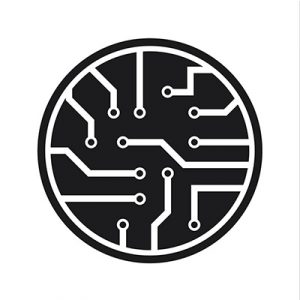 Deadline for submitting abstracts
Deadline for submitting abstracts
December 2, 2019
Submit today!
Topic Close-up #2
Symposium H02: Advanced CMOS-Compatible Semiconductor Devices 19
Symposium focus: This symposium will focus on the studies of new devices, circuits and applications for Moore and More-than-Moore technology. (more…)
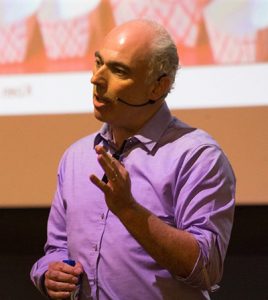 What do Koen Kas and Valerie Browning have in common? They were both chosen to deliver The Electrochemical Society (ECS) Lecture at meeting plenary sessions. ECS selects only the most prestigious and forward thinking specialists to present these lectures. Koen Kas delivered the ECS Lecture at the 235th ECS Meeting. Valerie Browning will present the ECS Lecture at the 236th ECS Meeting. Plenary session attendees get to meet the speakers. So be sure to mark your calendar for Browning’s presentation in October at the plenary session of the ECS Meeting.
What do Koen Kas and Valerie Browning have in common? They were both chosen to deliver The Electrochemical Society (ECS) Lecture at meeting plenary sessions. ECS selects only the most prestigious and forward thinking specialists to present these lectures. Koen Kas delivered the ECS Lecture at the 235th ECS Meeting. Valerie Browning will present the ECS Lecture at the 236th ECS Meeting. Plenary session attendees get to meet the speakers. So be sure to mark your calendar for Browning’s presentation in October at the plenary session of the ECS Meeting.
The ECS Lecture presenters speak on topics that are important for electrochemical and solid state scientists. Koen Kas is a lifetime member of ECS. A renaissance man, Kas is known as a healthcare futurist, entrepreneur, professor of molecular oncology, acclaimed international keynote speaker, and author.
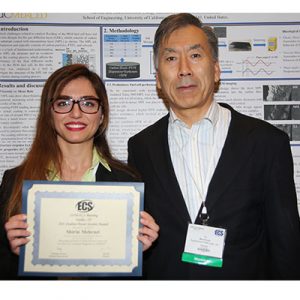 Show off your work at the 237th ECS Meeting with IMCS 2020. Students and early career professionals can present their research at special symposia.
Show off your work at the 237th ECS Meeting with IMCS 2020. Students and early career professionals can present their research at special symposia.
A04 Student Battery Slam 4: Students present ten-minute flash oral presentations on their battery technology work. Awards are given for the three best talks.
Z01 ECS General Student Poster Session: Students deliver oral or poster-form presentations on their research results in electrochemical and solid-state science and technology. A competition for the best posters and papers is part of the session.
The meeting is in Montréal, Canada from May 10-15, 2020. The deadline to submit abstracts is November 15, 2019.
Million-Mile Battery to Revolutionize Electric Vehicles
Posted on September 10, 2019 by Frances ChavesMore efficient, longer-lasting batteries are needed to ensure the future of the electric vehicle market. Thanks to Jeff R. Dahn and his Dalhousie University research team, a “million-mile battery” may soon be a reality. Dahn is Tesla’s battery research partner. In “A Wide Range of Testing Results on an Excellent Lithium-Ion Cell Chemistry to be used as Benchmarks for New Battery Technologies,” Dahn describes a new Li-ion battery cell with a single crystal NMC cathode and an advanced electrolyte. The new battery should power an electric vehicle for one million miles and last at least 20 years in grid energy storage—making Tesla’s electric-powered semi-autonomous driving cars and trucks viable.


